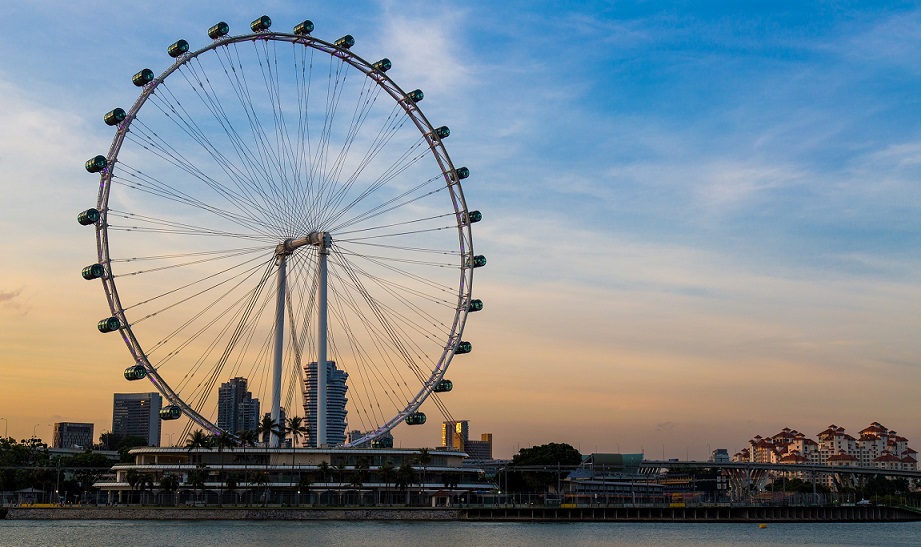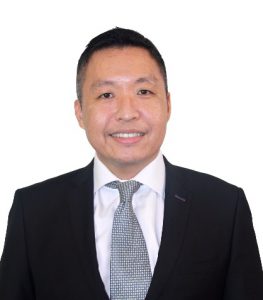
Market: The STI was up 1.6% in July. Macro data point to a peak in global growth rates. Almost all PMIs worldwide are decelerating. Singapore’s electronic exports have turned negative this year against an 8% expansion in 2017. Manufacturing new-order PMI has also rolled over. Germany IFO business expectations index is at the weakest in two years and Japan industrial production contracted for the first time in twenty months. Only the U.S. economy defies the trend. Healthy employment has sparked a rebound in consumer spending. Retail sales growth in the U.S. is close to a 7-year high. Small-business optimism is at its second-highest ever on record. The only side effect is, inflation is at a 6-year high and close to the Federal Reserve’s 2% target. The pressure on interest rates is irreversible at least this year.
The big macro event has been the spiralling mess in Turkey. Its exchange rate collapsed 30% against the US$ in a week. This was accompanied by an 18% spike in its benchmark interest rates. Turkey is important because it holds US$466b of external debt. This is not very far from Lehman’s US$620b of liabilities when it collapsed in September 2008. The most exposed to Turkish debt are European banks and bondholders. The worst case is a contagion onto other emerging markets, though Turkey is still less than 1% of emerging-market equity indices. In any contagion, the impact on Southeast Asia could be a liquidity flight and tightening interest rates to stem currency volatility. A trigger to contagion could be any decision by Turkey to implement capital controls. This deflation threat from emerging markets, softer global growth, trade-war fears and anxieties over China have weighed on commodity prices. The CRB index is down almost 5% in three weeks. Copper is trading at year lows. In summary, the three large macro trends are a strengthening US$, sliding commodity prices and rising interest rates. All negative for emerging markets.
Recommendation: The 2Q18 reporting season in Singapore has drawn to a close. Apart from banks, few industries offered cheer. Banks are riding an upswing in the credit cycle and NIMs. Healthcare and consumer demand in Singapore is sluggish. Any growth realised was through market-share gains. Sheng Siong is gaining share from wet markets and mall-based supermarkets. Thai Beverage disappointed due to weak rural spending in Thailand, as agriculture prices remained subdued. The earnings of most electronic companies were down, with the exception of Venture. SembCorp Industries’ bottom line was supported by more buoyant power prices in China and India. Marine was a let-down as vessel oversupply is unlikely to be resolved in the medium term. In property, we favour CapitaLand’s continued pursuit of recurring revenue streams where returns on equity can be higher with better predictability. Among the REITs, CapitaLand Commercial Trust benefitted from a 4% rebound in Grade A office rents in 2Q18 and compressing cap rates. SATS’ earnings surprised nicely as its overseas and non-aviation operations turned around faster than anticipated. Its core aviation business in Changi is also profiting from passenger growth and operating leverage. Our STI target remains at 3700. Any hopes of reaching this target is dependent on a rally in banking stocks.
PHILLIP SINGAPORE SECTOR UNIVERSE
Best performing sectors in Jul18 were Conglomerate, REIT – Office and Telecommunications. Conglomerates was supported by gains in all three Jardine stocks – Jardine Strategic (+9.3%), Jardine Matheson (+7%) and Jardine C&C (+5.7%). All REIT-Office stocks enjoyed gains, in particular SUNTEC REIT (+6.4%) and Keppel REIT (+6.4%). Telecommunications recorded gains from SingTel (+4.2%) and Starhub (+3.6%).
Worst performing sectors in Jul18 were REIT-Others, Transportation and Shipping. REIT-Others was dragged down by weakness in Hutchinson Port (-8.9%). Transportation was hit by losses in SIA (-7.8%) and SIA Engineering (-5.4%). Shipping fell after SembCorp Marine collapsed by 10.3%.
SUMMARY OF SECTOR AND COMPANY VIEWS
Phillip On The Ground – excerpts from our various conversations
SG Property – update after cooling measures
Electronic companies
Rubber Gloves
Important Information
This report is prepared and/or distributed by Phillip Securities Research Pte Ltd ("Phillip Securities Research"), which is a holder of a financial adviser’s licence under the Financial Advisers Act, Chapter 110 in Singapore.
By receiving or reading this report, you agree to be bound by the terms and limitations set out below. Any failure to comply with these terms and limitations may constitute a violation of law. This report has been provided to you for personal use only and shall not be reproduced, distributed or published by you in whole or in part, for any purpose. If you have received this report by mistake, please delete or destroy it, and notify the sender immediately.
The information and any analysis, forecasts, projections, expectations and opinions (collectively, the “Research”) contained in this report has been obtained from public sources which Phillip Securities Research believes to be reliable. However, Phillip Securities Research does not make any representation or warranty, express or implied that such information or Research is accurate, complete or appropriate or should be relied upon as such. Any such information or Research contained in this report is subject to change, and Phillip Securities Research shall not have any responsibility to maintain or update the information or Research made available or to supply any corrections, updates or releases in connection therewith.
Any opinions, forecasts, assumptions, estimates, valuations and prices contained in this report are as of the date indicated and are subject to change at any time without prior notice. Past performance of any product referred to in this report is not indicative of future results.
This report does not constitute, and should not be used as a substitute for, tax, legal or investment advice. This report should not be relied upon exclusively or as authoritative, without further being subject to the recipient’s own independent verification and exercise of judgment. The fact that this report has been made available constitutes neither a recommendation to enter into a particular transaction, nor a representation that any product described in this report is suitable or appropriate for the recipient. Recipients should be aware that many of the products, which may be described in this report involve significant risks and may not be suitable for all investors, and that any decision to enter into transactions involving such products should not be made, unless all such risks are understood and an independent determination has been made that such transactions would be appropriate. Any discussion of the risks contained herein with respect to any product should not be considered to be a disclosure of all risks or a complete discussion of such risks.
Nothing in this report shall be construed to be an offer or solicitation for the purchase or sale of any product. Any decision to purchase any product mentioned in this report should take into account existing public information, including any registered prospectus in respect of such product.
Phillip Securities Research, or persons associated with or connected to Phillip Securities Research, including but not limited to its officers, directors, employees or persons involved in the issuance of this report, may provide an array of financial services to a large number of corporations in Singapore and worldwide, including but not limited to commercial / investment banking activities (including sponsorship, financial advisory or underwriting activities), brokerage or securities trading activities. Phillip Securities Research, or persons associated with or connected to Phillip Securities Research, including but not limited to its officers, directors, employees or persons involved in the issuance of this report, may have participated in or invested in transactions with the issuer(s) of the securities mentioned in this report, and may have performed services for or solicited business from such issuers. Additionally, Phillip Securities Research, or persons associated with or connected to Phillip Securities Research, including but not limited to its officers, directors, employees or persons involved in the issuance of this report, may have provided advice or investment services to such companies and investments or related investments, as may be mentioned in this report.
Phillip Securities Research or persons associated with or connected to Phillip Securities Research, including but not limited to its officers, directors, employees or persons involved in the issuance of this report may, from time to time maintain a long or short position in securities referred to herein, or in related futures or options, purchase or sell, make a market in, or engage in any other transaction involving such securities, and earn brokerage or other compensation in respect of the foregoing. Investments will be denominated in various currencies including US dollars and Euro and thus will be subject to any fluctuation in exchange rates between US dollars and Euro or foreign currencies and the currency of your own jurisdiction. Such fluctuations may have an adverse effect on the value, price or income return of the investment.
To the extent permitted by law, Phillip Securities Research, or persons associated with or connected to Phillip Securities Research, including but not limited to its officers, directors, employees or persons involved in the issuance of this report, may at any time engage in any of the above activities as set out above or otherwise hold an interest, whether material or not, in respect of companies and investments or related investments, which may be mentioned in this report. Accordingly, information may be available to Phillip Securities Research, or persons associated with or connected to Phillip Securities Research, including but not limited to its officers, directors, employees or persons involved in the issuance of this report, which is not reflected in this report, and Phillip Securities Research, or persons associated with or connected to Phillip Securities Research, including but not limited to its officers, directors, employees or persons involved in the issuance of this report, may, to the extent permitted by law, have acted upon or used the information prior to or immediately following its publication. Phillip Securities Research, or persons associated with or connected to Phillip Securities Research, including but not limited its officers, directors, employees or persons involved in the issuance of this report, may have issued other material that is inconsistent with, or reach different conclusions from, the contents of this report.
The information, tools and material presented herein are not directed, intended for distribution to or use by, any person or entity in any jurisdiction or country where such distribution, publication, availability or use would be contrary to the applicable law or regulation or which would subject Phillip Securities Research to any registration or licensing or other requirement, or penalty for contravention of such requirements within such jurisdiction.
This report is intended for general circulation only and does not take into account the specific investment objectives, financial situation or particular needs of any particular person. The products mentioned in this report may not be suitable for all investors and a person receiving or reading this report should seek advice from a professional and financial adviser regarding the legal, business, financial, tax and other aspects including the suitability of such products, taking into account the specific investment objectives, financial situation or particular needs of that person, before making a commitment to invest in any of such products.
This report is not intended for distribution, publication to or use by any person in any jurisdiction outside of Singapore or any other jurisdiction as Phillip Securities Research may determine in its absolute discretion.
IMPORTANT DISCLOSURES FOR INCLUDED RESEARCH ANALYSES OR REPORTS OF FOREIGN RESEARCH HOUSE
Where the report contains research analyses or reports from a foreign research house, please note:

Paul has 20 years of experience as a fund manager and sell-side analyst. During his time as fund manager, he has managed multiple funds and mandates including capital guaranteed, dividend income, renewable energy, single country and regionally focused funds.
He graduated from Monash University and had completed both his Chartered Financial Analyst and Australian CPA programme.